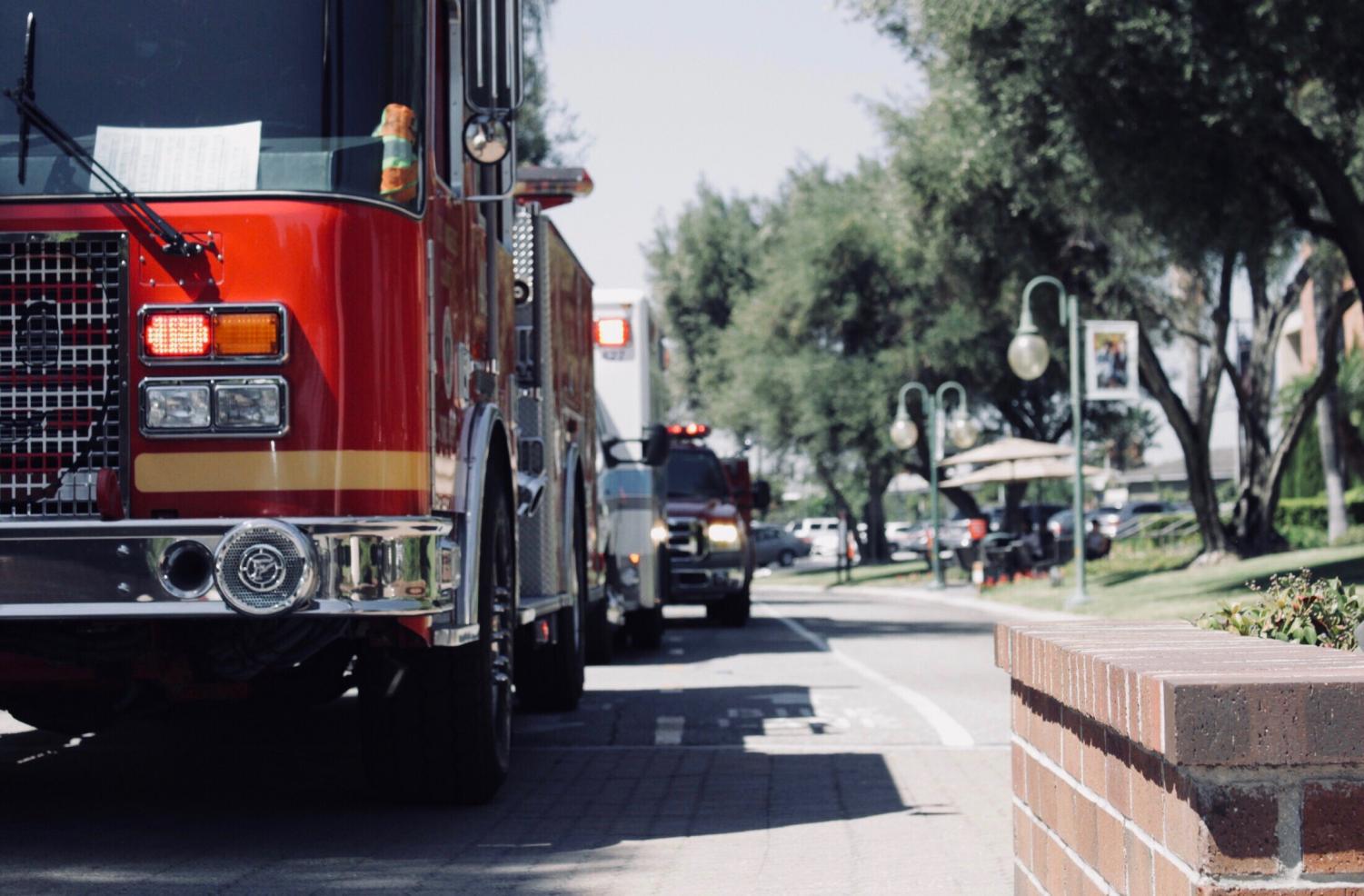When the unexpected strikes Biola, all eyes are on Campus Safety. In addition to responding to a recent wave of bike theft and transient individuals, the department is also responsible for handling emergency medical calls.
Upon receiving a medical emergency call, officers are trained to ask questions that help both Campus Safety and, if necessary, Emergency Medical Services determine the nature of the emergency.
Campus Safety public information officer Justin Shelby estimates that calls regarding medical emergencies happen three or four times a month, though students more often call the medical emergency line for other reasons—things like intramural sports injuries, panic attacks and seizures.
“We’d rather respond to something as an emergency and have it turn out to not be life-threatening than vice-versa,” Shelby said.
If a condition is life-threatening, Campus Safety dispatchers contact EMS, and officers administer first aid until paramedics arrive.
While students can call EMS directly in an emergency, for on-campus emergencies Shelby recommends contacting Campus Safety first. According to Shelby, the department responds to on-campus medical emergencies within one to three minutes, depending on where it is.
In a medical emergency, time can make the difference between life and death. Sgt. Jose Alvarez remembered a situation a few years ago in which he and other Campus Safety officers were able to provide life-saving care to a student experiencing a heart attack.
“We first received the phone call. At the same time our dispatchers did contact EMS, but since we did arrive there first,” Alvarez said. “We utilized the [defibrillator] and that did restart his heart. We provided both compressions and breaths for him until the paramedics arrived… By God’s grace, he went through a number of surgeries and he’s still alive today.”
The Health Center also provides emergency medical response, but only during business hours, Monday to Friday. This year, Campus Safety has introduced a program that responds to emergency medical calls when the Health Center is closed, working from 4 p.m. to 2 a.m to provide continuous emergency medical care.
The program put two of Campus Safety’s officers through EMT training and certification to state and national standards, a yearlong process that goes beyond the basic life support training required of all officers. Alvarez said the additional 170 to 200 hours of training further equips the officers to recognize and treat medical emergencies and trauma. And though medical emergencies will always be rife with uncertainty, Campus Safety continues to work towards providing security in times of need.











